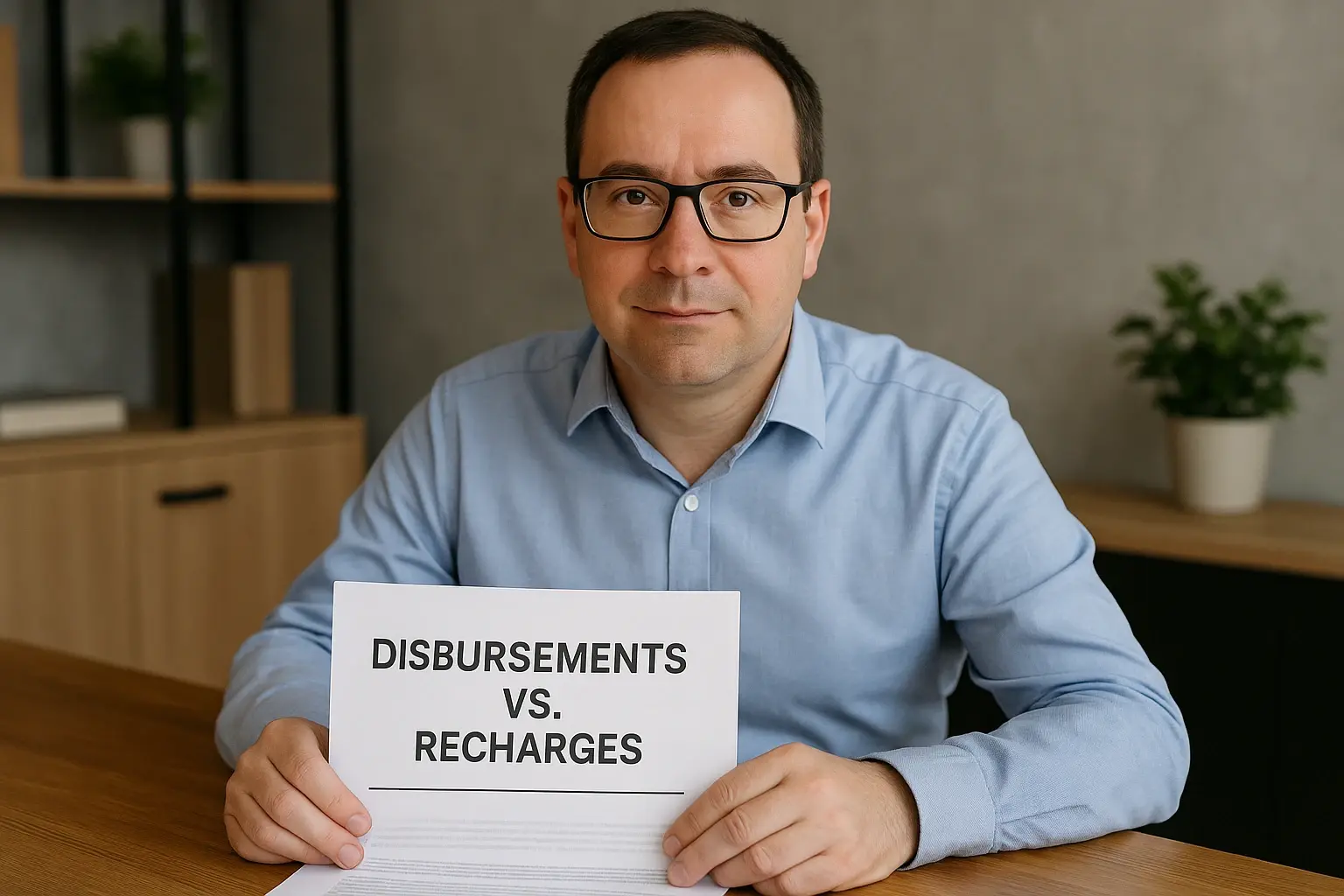When you buy something on behalf of a client, can you just pass on the cost and forget about it? Or do you need to add VAT, include it in your accounts, and treat it as income?
The answer lies in whether what you’ve paid for counts as a disbursement and HMRC has very specific rules about that.
Let’s break it down, without the jargon.
What Is a Disbursement?
A disbursement is a payment you make on behalf of your client, as their agent, for something that is truly their cost, not yours. You’re simply acting as a middle-person to settle the bill. You don't mark it up, and you don’t include it in your sales figures.
Think of it like this: You’re the courier, not the buyer.
Common examples that can be disbursements:
- Domain name registration
- Trade marks
- Film festival submission fees
If it’s a true disbursement, you don’t add VAT when you recharge it, and it doesn’t go on your VAT return.
What Isn’t a Disbursement?
Most things that feel like disbursements… actually aren’t.
Let’s say you're a creative agency and:
- You book train tickets to travel to a client shoot
- You buy stock images or music licences to use in their project
- You pay a freelance designer to work on their campaign
Even if the client agrees to reimburse you, these are your business costs, because you chose the supplier, entered into the contract, and paid for it in your name.
These are known as recharges, not disbursements.
And here's the big difference:
If you’re VAT-registered, you must add VAT when you recharge these costs to the client, even if there was no VAT on the original purchase.
The 8 Tests for a True Disbursement (according to HMRC)
For something to qualify as a disbursement, all of the following must be true:
- You paid the supplier on your client’s behalf.
- Your client received the goods or services directly.
- Your client knew they were responsible for paying.
- Your client authorised you to make the payment.
- The client used the item purchased.
- The cost is clearly itemised separately on your invoice.
- You pass on the exact amount without a markup.
- You don’t claim VAT on the original cost.
Fail any one of those and you're looking at a recharge, not a disbursement.
Tax and Accounting Implications
For disbursements:
- The money does not count as income in your accounts.
- You don’t claim VAT on the cost.
- You don’t charge VAT when you pass it on.
For recharges:
- The original cost is your expense and goes in your accounts.
- You can claim any VAT on the original expense (if there was any and it’s allowed).
- You must add VAT when recharging the client (even if there was no VAT on the original cost).
Creative Business Example:
Let’s say you’re a videographer.
Scenario A: Disbursement
Your client wants to submit a film to a festival. You pay the entry fee on their behalf and they reimburse you.
✅ The festival accepts the film in their name.
✅ You were just the go-between.
→ This may be a disbursement, no VAT to charge.
Scenario B: Recharge
You buy a music licence for their film from your usual supplier.
❌ The licence is in your name, and you invoice the client for it.
→ This is a recharge, you must charge VAT, even if the licence was VAT-exempt.
The Bottom Line
Just because you reimburse something doesn’t make it a disbursement. In most cases, if you control the purchase or contract the supplier yourself, it’s a recharge, and VAT rules apply.
And remember: getting this wrong could result in HMRC demanding VAT you never charged, or letting clients reclaim VAT they weren’t entitled to.
Need Help Navigating the Grey Areas?
At ESXR, we make sure your invoices, and your tax position, are bulletproof. If you regularly buy things on behalf of clients and want to get the VAT right, let’s have a chat.
Found that content useful?
Why not sign up for more good stuff!!


